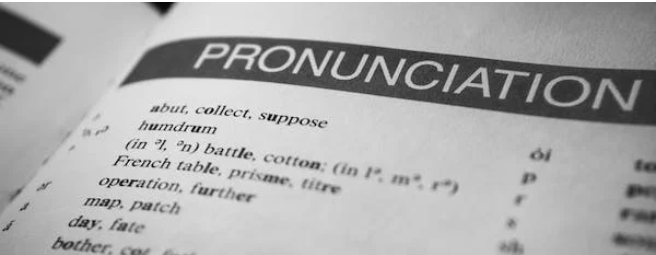Loose vs Lose: The Power of A Single Letter Difference
Contents

The Confusing Case of "Loose" and "Lose"
The English language is full of confusing words, and one such pair that often confounds learners is "loose" and "lose." Did you know that these two are among the most frequently confused words in the English language? They often lead to hilarious misunderstandings or embarrassing moments. Just imagine accidentally telling someone that you've "loosed your keys" instead of saying you've lost them! These mix-ups highlight the importance of mastering their correct usage.
Understanding the distinction between such similar, yet confusing words is crucial for effective communication in English. Using the wrong word can lead to misunderstandings and misinterpretations. So, the aim of this article is to provide a clear understanding of the differences in meaning, pronunciation, common mistakes, tips for proper usage, and even translations into Indian languages for the confusing words "loose" and "lose." By the end of this article, you'll have a solid foundation on how to use these words correctly in your everyday conversations.
Let's get started!
Clearing the Confusion: Meaning of "Loose" and "Lose"
Let's start by taking a closer look at the meanings of these words to clear up any confusion.
"Loose" is an adjective that describes something not tight or secure. It can refer to clothing that does not fit tightly, like loose-fitting pants or a loose shirt. In addition, it can also describe relaxed or informal behaviour.
"Lose" is a verb that signifies misplacing something or failing to win. For example, you may lose your personal belongings like keys or a wallet, which means you cannot find them. Similarly, in a sports game or competition, if your team does not win, you can say that you lost.
Now that we have established their meanings let's explore some contextual examples of "loose" and "lose" in sentences to demonstrate the correct usage of these words:
Words | Context | Examples |
Loose | Not secure | The screw in the furniture became loose over time. |
Clothing | My pants are too loose after losing weight. | |
Behaviour | She doesn't like people with a loose tongue. | |
Lose | Misplacing | I always seem to lose my keys when I'm in a rush. |
Competition | Our team might lose the match against our rivals. |

Loose vs Lose: Pronunciation Differences
When it comes to the words "loose" and "lose," it's not just their meanings that can cause confusion, but also their pronunciation. The subtle difference in the sound of a single letter can lead to miscommunication and misunderstandings. Let's dive into the pronunciation differences between "loose" and "lose" in various English accents.
1. US English:
"Loose": In US English, the word "loose" is pronounced as [loos], with a long /oo/ sound like in "food" and a soft /s/ sound at the end.
"Lose": On the other hand, "lose" is pronounced as [loo-z], with a long /oo/ sound followed by a clear /z/ sound.
2. UK English:
"Loose": In UK English, the pronunciation of "loose" is similar to US English, with a long /oo/ sound and a soft /s/ at the end.
"Lose": However, in UK English, the word "lose" has a slightly different pronunciation. It is pronounced as [lu:z], with a longer /u:/ sound like in "blue" followed by a clear /z/ sound. The vowel sound in "lose" is slightly longer than that in "loose".
3. Indian English:
Indian English pronunciation of "loose" and "lose" is similar to UK English. Loose is pronounced as [loos] and and lose as [lu:z].
Indian learners often struggle with differentiating between the short 'oo' and soft 's' sounds in "loose" and the long 'oo' and clear 'z' sounds in "lose." This can result in miscommunications and misunderstandings while speaking. To overcome this challenge:
Listen carefully to native speakers pronouncing these words.
Practice speaking aloud and pay attention to your pronunciation.
Record yourself while speaking and compare it with native speakers.
Seek feedback from native speakers or language experts who can guide you on proper pronunciation.
For a better understanding of the pronunciation of "loose" and "lose," you can listen to audio examples from reliable sources like Merriam-Webster's online dictionary or YouTube tutorials specifically designed for pronunciation practice.
Common Mistakes to Look Out For
Let's take a closer look at some common mistakes to avoid when using "loose" and"lose."
1. Incorrectly using "loose" as a verb:
Using "loose" as a verb when it should be used as an adjective is one of the common mistakes made by English learners. For instance, saying "I will loose weight by exercising regularly," which should be corrected to say "I will lose weight by exercising regularly." Remember that "loose" is used to describe something not tight or secure, while "lose" means to misplace or fail to win.
2. Misplacing hyphens with compound adjectives involving "loose":
Hyphens are commonly misused when it comes to compound adjectives that involve the word "loose." For example, saying "She wore a loose-fitting dress," but mistakenly writing it as "She wore a loose fitting dress" without the hyphen. The correct usage is with the hyphen because it clarifies that both words together form a compound adjective modifying the noun.
To avoid making these mistakes, it's important to understand and remember the meanings of both words. Practice using them correctly in sentences and pay attention to their pronunciation differences.
How to Remember the Difference between "Loose" and "Lose"?
Here are some tips that will help you avoid getting confused between "loose" and "lose," and remember the difference:
Tip 1: Visualize the Spelling
One way to remember which word is which is to visualize their spelling. The word "loose" has double o's like in the word "too," which also means something excessive or more than enough. So, when you see those double o's in "loose," think of it as something extra or not tightly held together.
On the other hand, the word "lose" only has one o. Think of it as losing something, where there's a loss of something important.
Tip 2: Mnemonic Device
Another helpful technique is using a mnemonic device. Create a simple phrase or sentence that helps you remember the difference between these words. For example:
"Lose has one 'o,' just like when I lose my phone."
This sentence connects losing with having only one 'o' in its spelling.
Tip 3:Visualize Scenarios
Picture yourself in different situations where either "loose" or "lose" would be appropriately used. This visualization technique helps reinforce proper usage in your mind.
Tip 4:Practice with Sentences
To solidify your understanding, practice using "loose" and "lose" in sentences. For instance, you could say, "I need to tighten this loose screw before it falls out," or "Don't lose hope even when things get tough."
Now that we've explored various strategies for remembering the distinction between "loose" and "lose," let's move on to understanding how these words differ in Indian languages.
"Loose" vs "Lose" in Indian Languages
As English learners, we often find ourselves confused about how to use these words correctly in our native tongues. Let's explore the translations of "loose" and "lose" in popular Indian languages to gain a better understanding:
Language | Translation of Loose | Translation of Lose |
Hindi | ढीला (Dheela) | खोना (Khona) |
Telugu | వదులుగా (Vaduluga) | కోల్పోతారు (Kōlpōtāru) |
Bengali | আলগা (Ālagā) | হারান (Hārāna) |
Marathi | सैल (Saila) | गमावणे (Gamāvaṇē) |
Gujarati | છૂટક (Chūṭaka) | ગુમાવવું (Gumāvavuṁ) |
Kannada | ಸಡಿಲ (Saḍila) | ಕಳೆದುಕೊಳ್ಳುತ್ತಾರೆ (Kaḷedukoḷḷuttāre) |
Now that you have a better understanding of both words in English as well as their translations in Indian languages, you'll be able to navigate conversations more smoothly.
Final Remarks
Understanding the difference between words like "loose" and "lose" is crucial when it comes to spoken English. The confusion between these two words can lead to misunderstandings and even change the entire meaning of a sentence. So, let's recap the key points we discussed in this article.
Firstly, we explored the meanings of "loose" and "lose." "Loose" is used to describe something not tight or secure, while "lose" refers to misplacing or failing to win something. We looked at various contexts where these words are used correctly, such as loose-fitting clothing or misplacing personal belongings.
We also discussed the differences in the pronunciation of "loose" and "lose" and highlighted some common mistakes to look out for while using "loose." To help you remember the difference between these two words, we also introduced some memory aids. For Indian readers, we provided translations for 'loose' and 'lose' in popular Indian languages.
Mastering the difference between "loose" and "lose" can prevent confusion and ensure that your message is accurately conveyed. Remembering key points such as the meanings, pronunciation, and common mistakes will help you use these words correctly.
If you're looking for further language learning support, Clapingo is a valuable platform. Clapingo provides personalised spoken English coaching classes that are designed to help learners navigate their language-learning journey with ease. Clapingo's blog also offers many useful resources like a comprehensive guide to English grammar and a curated list of spoken English books for learners at all levels.
FAQs
1: Is it "loose hope" or "lose hope"?
The correct phrase is "lose hope." The word "lose" in this context means to be deprived of or unable to find something, which perfectly captures the feeling of losing hope.
2: How do you use "loose" and "lose" in a sentence correctly?
To use "loose" correctly, remember that it is an adjective that describes something not tight or secure. For example, you could say, "She wore loose-fitting pants for comfort."
On the other hand, "lose" is a verb used to indicate misplacing something or failing to win. For example, you could say, "I always lose my keys when I'm in a rush."
3: Which is correct, loose or lose?
The word you choose depends on what you want to convey. If you want to describe something not tight or secure, then use "loose." If you're talking about misplacing or failing to win something, go with "lose."
Comments
Your comment has been submitted